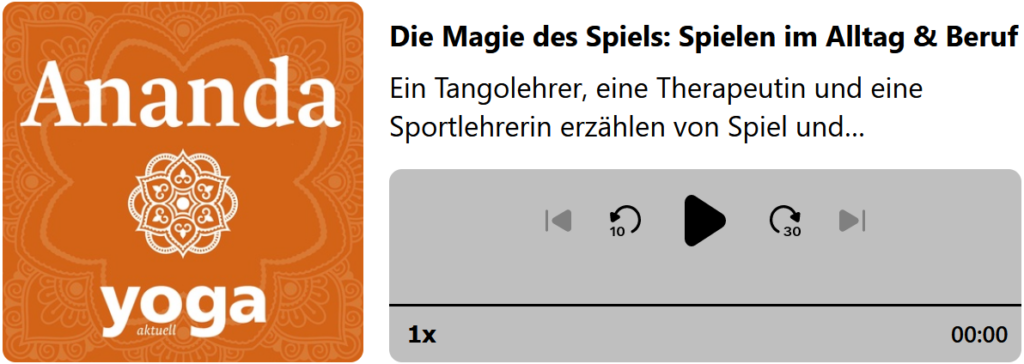Sometimes a thousand words are a good addition to a picture.
And I have already been able to report on my work in various media. Here are a few links to video interviews and podcasts:
In this English podcast I talk to Mark Wash about dance therapy and psychiatric work. We talk about role models, Berlin, embodiment history, trauma work in Bosnia, divided cities, the window of tolerance, the “Coke” trauma model, NGO psychology, epigenetics, “trauma” as a word, yoga vs. dance, the Embodiment Conference, post-Trump embodiment, the Embodiment Circle, online vs. offline connections, going in vs. going out, and the peer-led movement! An entertaining, profound and lively conversation.
In this beautifully recorded English video podcast by photographer Jens Wazel, I give a brief overview of the exciting journey from the beginnings of my training in the USA to my current projects in Berlin and Stolzenhagen.
Breathe deeply to be more present in the here and now. Join me in a meditation where I will guide you (in English) through an exercise to help you listen to your body better. As a dancer and systems therapist, I combine my profession with my lifelong commitment as an activist. I believe that when we learn to listen to our bodies and show up with a compassionate presence in all that is, we can collectively have a deeper impact on social change.
In this German podcast hosted by Ananda Yoga, I am in conversation with my Berlin colleagues Rafael Busch and Julia Olufemi. As a body-oriented systemic therapist, I was able to contribute my experience and ideas here. Our topic was new ways to find vitality and zest for life through play in everyday and professional life.
This English podcast is about the impact that research in traumatizing contexts can have on researchers and what individuals, but also academia as an institution, can do to mitigate these effects. In this conversation, moderated by Kerstin Bischl from KonkKoop/ZOiS, I talk to Hanna Vakhitova, assistant professor and senior economist at the Kyiv School of Economics, about mental health in academia and personal and institutional ways to take care of yourself in the process.




